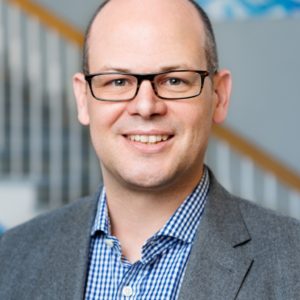 Interview with Prof. Dr. Georg von Schnurbein, Director Center for Philanthropy Studies (CEPS)
Interview with Prof. Dr. Georg von Schnurbein, Director Center for Philanthropy Studies (CEPS)
Georg, what are the three broad issues that will drive the Swiss foundation and philanthropy sector in the next 10 years?
A first trend is the increase in regulation. Changes in business reporting, state regulation and international efforts against terrorism or money laundering have an impact on the management of grant-making foundations. Thus, the sector needs to become more transparent and has to provide more information to the public. The second trend is global philanthropy. Many large international organisations – humanitarian and philanthropic organisations – are located in Switzerland and operate globally from here. Finally, the grant-making itself will change to a higher variety of support instruments. As a general direction, one can say from donation to investment.
Which topics do you expect philanthropy to focus on?
In recent years, we have seen a slow but steady change from culture to more social and environmental issues. The areas of education and research have been strong for a long time, and will become even more important. As a consequence, philanthropists and foundations will interfere more in highly political areas which will lead to more controversial debates about philanthropic engagement.
What are the traditional philanthropists and how do you expect this to develop in the future?
Traditional philanthropists in Switzerland are private individuals in the last third of their life. Today, we see younger people getting involved in philanthropy, they are interested in innovative models and more direct involvement. Usually, foundations were labeled as “banks of the NPOs”, but the new generation wants to be an active partner. Additionally, with an increase of employed collaborators with field experience in foundations, they become more knowledgeable and develop own programmes.
What role will philanthropy take?
Philanthropic foundations will play a more active role, but this counts only for the large foundations. As most of the foundations in Switzerland are rather small with an endowment of less than 3 Mio. USD, they will stay in the background, searching for partnerships or supporting other organisations.
Will Swiss philanthropy be more national focused or also regional and global?
We have already seen an increase of more internationally involved foundations. The combination of the humanitarian tradition, a stable political and legal system and a well-established financial sector make Switzerland a global hub of philanthropy. Currently, 20% of the Swiss foundations fulfill an international purpose. Nevertheless, regional perspectives are very strong and support the federal system of cantons in the country.
Switzerland has a long humanitarian tradition. What does this imply for the further development of philanthropy?
The humanitarian tradition is an obligation for the state and politics to offer good and stable conditions for organisations such as the International Committee of the Red Cross (ICRC) to operate. Thus, international organisations find a fertile ground for their operations and many new organisations are located here. This facilitates exchange among the organisations and creates linkages for collaboration and co-operation. Philanthropists and foundations can take advantage of this dense network and connect easily, even for global activities. Additionally, the Swiss people are very generous for humanitarian causes. 50 percent of private donations go to international causes.
Is there any other information which you consider as vital for the sector?
With 15.6 foundations per 10,000 inhabitants, Switzerland has one of the highest densities of foundations and you will find a foundation for nearly every cause.
If people want to get informed about news and tendencies on philanthropy in Switzerland, where can they find this information?
- Information is available in the annual Swiss Foundation Report (German and French) http://www.stiftungsreport.ch; open data on foundations can be found on http://www.stiftungsstatistik.ch
- For further information on current events, contacts, executive trainings etc. please visit http://www.swissfoundations.ch or http://www.ceps.unibas.ch





Comments (1)